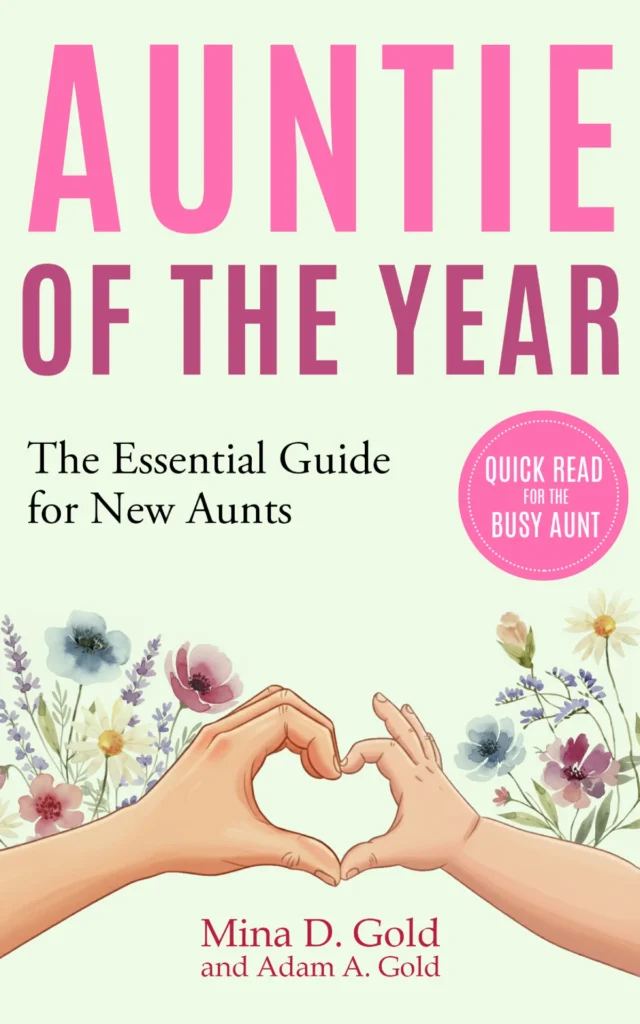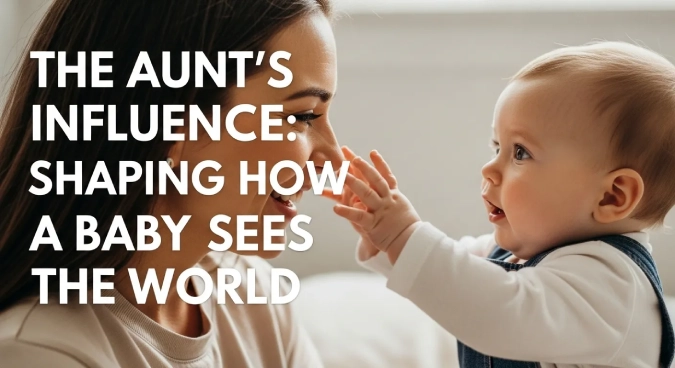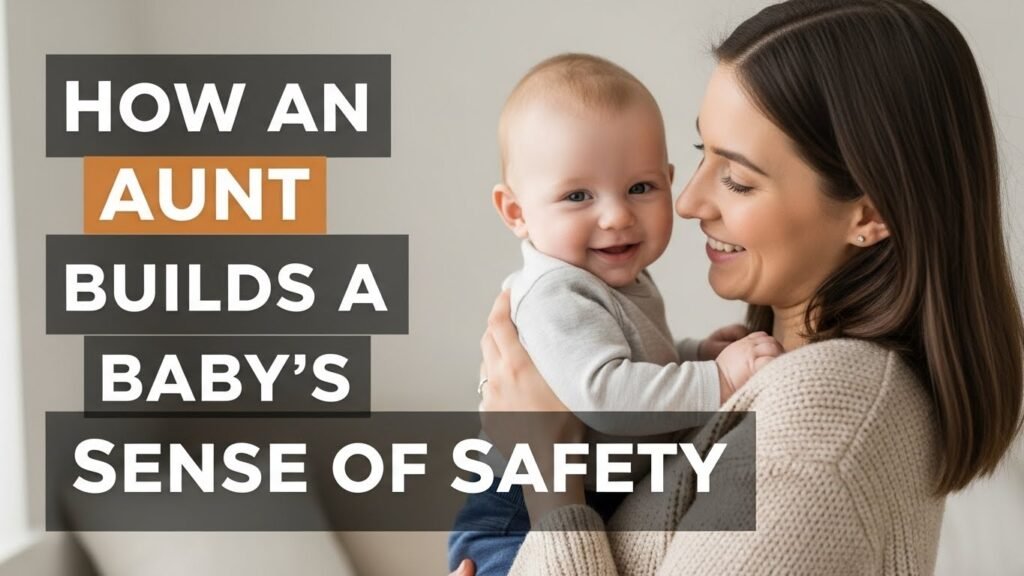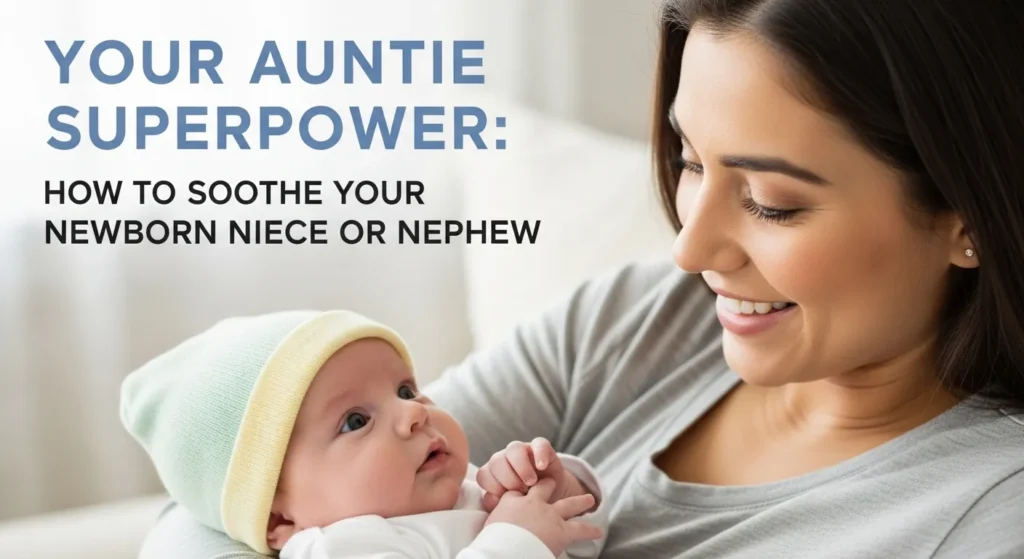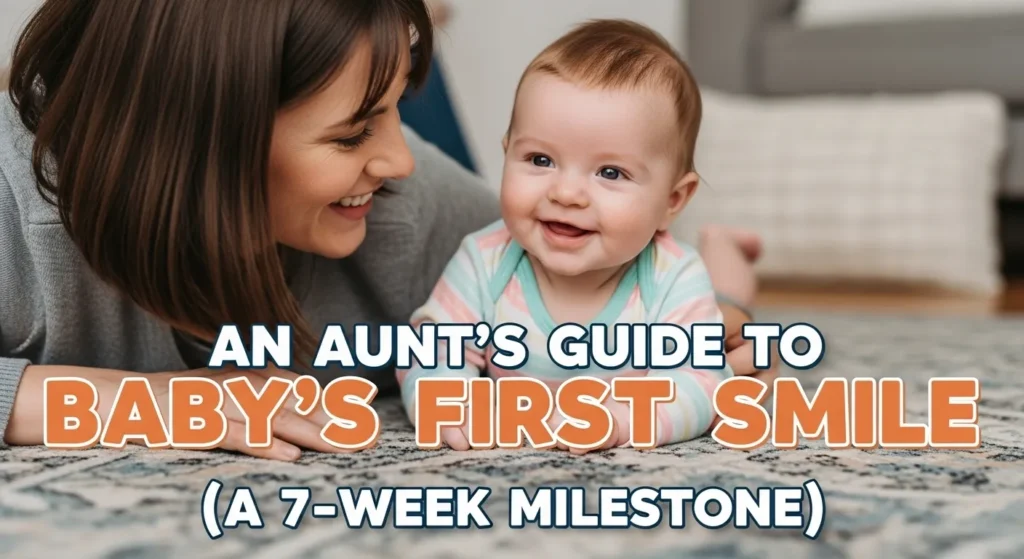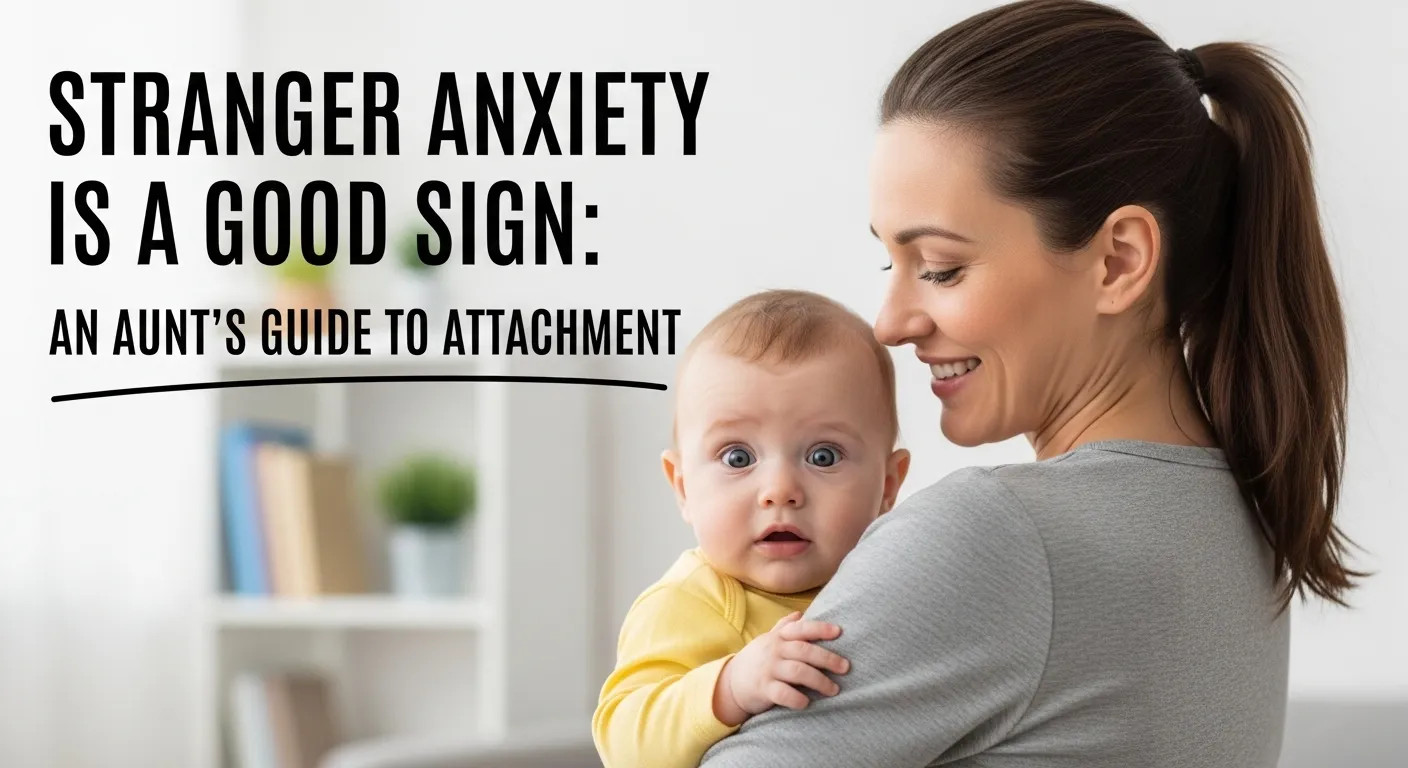
Just when you are getting used to your niece or nephew’s social smiles and giggles, a new behavior might pop up. The baby who used to happily go to anyone now buries their head in your shoulder when a new person says hello. They might even cry when a well-meaning stranger gets too close.
This sudden shyness can feel confusing, but what is really going on? This is a normal and healthy stage of development called stranger anxiety. Far from being a regression, it is actually positive proof of the strong, loving bond that the baby has with you. This aunt guide to stranger anxiety will help you navigate this new phase with confidence.
Why My Sweet, Social Baby is Suddenly Afraid
This shift is a major cognitive milestone. It means the baby’s brain has developed enough to clearly tell the difference between their familiar, trusted people (like you) and everyone else. Their crying or shyness is not a step backward; it is a sign of their growing intelligence and their deep attachment to you.
A baby’s world is becoming more organized. They now have a mental list of their “safe” people. Anyone not on that short, exclusive list is a stranger. In my book, Auntie of the Year, I explain this important emotional development:
“They show strong attachment to you and may feel shy around strangers.”
The key is to understand that these two behaviors are directly linked. The shyness around strangers is happening because of the strong attachment to you. They now know who their trusted circle is, and they are wary of anyone outside of it. This is a very smart and healthy survival instinct.
How to React When the Baby Gets Scared
The best way you can help is by being a calm, patient, and reassuring “safe base.” Your main goal is to show the baby that you respect their feelings and that you will not force them into an uncomfortable situation.
Your calm confidence shows the baby how to feel. When you are relaxed, you are nonverbally telling them that there is no danger. Here are four simple strategies to use:
- Do Not Force It: Never push the baby into the arms of a new person when they are showing fear. Let them stay in the safety of your arms. This builds their trust in you.
- Act as a Bridge: Hold the baby securely while you turn and speak happily to the new person. Your relaxed and friendly tone of voice shows the baby that this new person is okay.
- Give Them Time to Warm Up: Allow the baby to simply observe the new person from the safety of your lap. Often, after a few minutes of watching you interact, their natural curiosity will start to overcome their initial shyness.
- Acknowledge Their Feelings: As experts at HealthyChildren.org suggest, validating their emotion provides reassurance. You can use a soothing voice to say, “That’s a new friend. It is okay, I am right here with you.”
Frequently Asked Questions
When does stranger anxiety usually start and end?
It typically begins between 6 and 9 months and peaks around 12 to 15 months. While it usually resolves by age 2 as the child develops social skills, it is a normal behavior that can persist throughout toddlerhood.
What about separation anxiety? Is that the same thing?
They are related but different. Stranger anxiety is the fear of unfamiliar people. Separation anxiety is the distress a baby feels when their trusted caregiver, like you or a parent, leaves them. Both behaviors are rooted in the baby’s growing understanding of love and attachment.
Can I help prevent stranger anxiety from happening?
You cannot prevent it, because it is a normal and healthy part of brain development. The goal is not to prevent it, but to help your niece or nephew manage the feeling with your patience and reassurance when it does happen.
Get the Complete Guide
Loved this post? Get the full guide to bonding with your new niece or nephew in Auntie of the Year.

